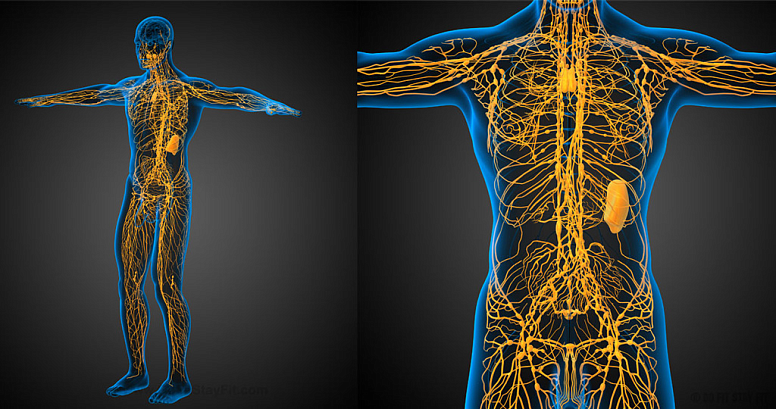Dhatu is the one of the main concepts in Ayurveda. Dhatu is bodily tissues that sustain our organism. So, the study of Ayurveda without a comprehensive examination of this term would be superficial. This article begins a series of articles dedicated to the tissues of our body and will focus on rasa — the vital juice of the body.
Features of Rasa-Dhatu
Rasa-dhatu is fundamental in the theory of bodily tissues. The very origin of this name is interesting. When translated from Sanskrit, the word "rasa" can have no less than 30 meanings, the main one being "taste". Another meaning of this term is "emotions". The ancient language of Sanskrit has many rules, one of which tells us that if a word or term has several meanings, then these concepts are closely related. Rasa can both provide our mind with emotions and impart taste to something.
This dhatu (rasa) is the first to appear in our body; its formation process takes five days. Rasa is present throughout the body; thus, we need to remember another meaning of the word — "juice," therefore it is also called the juice of our body because it connects the entire body by means of its fluids. It is formed from the food that enters our body. Here it is appropriate to recall the expression: "We are what we eat." If a person's food is sattvic, prepared properly from fresh products, then we not only gain invaluable health benefits and excellent emotions but also correctly form the first and most important tissue. If rasa-dhatu is formed incorrectly, it leads to dysfunctions in other tissues. One should also not forget about one's emotional state, which greatly influences the formation of rasa.
In modern medicine, this dhatu is referred to as chyle. Essentially, it is also a primary juice formed during the digestion of food. It then transforms into lymph and plasma. All three elements — plasma, lymph, and chyle — are combined by Ayurveda into one concept — rasa-dhatu. The transformation of this tissue occurs thanks to agni.
As we know, one of the main tasks of rasa is providing nutrition for the entire body and all dhatus. An important function is also the reflex of satisfaction from this nutrition and satiety. At the same time, rasa-dhatu gives rise to the next tissue — rakta-dhatu.
Moreover, each dhatu has derivatives (subtissues) called "upadhatu." The derivatives of rasa include menstrual blood and breast milk. It would be helpful to remind here once again about the emotional state, but now that of nursing mothers. The food they consume and their mood will determine what emotions their baby receives. Therefore, during breastfeeding, mothers should avoid stress and questionable company; it is essential to maintain a proper, calm state of mind.
It should also be noted that imbalances associated with menstruation, such as menorrhagia or amenorrhea, are consequences of dysfunction in rasa-dhatu. The waste product of this tissue is mucus in our body.
Typically, doctors and specialists in Ayurveda begin their consultations by asking about the patient's mood. This is not idle curiosity or a sign of politeness or customer orientation but rather an inherently correct approach. In his lectures on Ayurveda, the renowned Indian guru E.K. Krishnamacharya, emphasized the necessity of this question since the emotional setting determines the onset of illness and its possible consequences. This is directly related to rasa-dhatu. If a person is in a stable state and regularly experiences positive emotions, it means that this tissue functions fully and your health is not threatened. Conversely, depression and negativity destroy the tissue, leading to illnesses. In other words, Ayurveda established a direct correlation between the person’s emotional background and physical health.
For rasa-dhatu, the main emotion is satisfaction. This refers not to base animal needs but to the joy derived from good deeds, kind movies, or actions that benefit this world. It’s worth remembering another aspect: one of the functions of this dhatu is nourishment, and if we do not find satisfaction in work or hobbies, we will seek it in food. It has become normal for many people today to "eat" away fears, doubts, and troubles, which leads to excess weight and consequently health problems.
Consequences of Rasa Imbalance
This tissue is closely connected with kapha dosha; therefore, an excess of rasa is accompanied by symptoms similar to those caused by excess kapha. Primarily, it gives rise to negative emotions; as feelings intensify, they lead to anxiety and fear. A person may feel that everyone wants to deceive them. They become insecure and feel betrayed and insulted. When there is little rasa in the body, exhaustion and quick fatigue are noted. It becomes difficult to tolerate noise, and skin begins to age faster.
Remember that only a doctor can diagnose a deficiency or excess of various elements. Do not engage in self-treatment. A specialist will select and prescribe an individual course of therapy tailored specifically for you.
